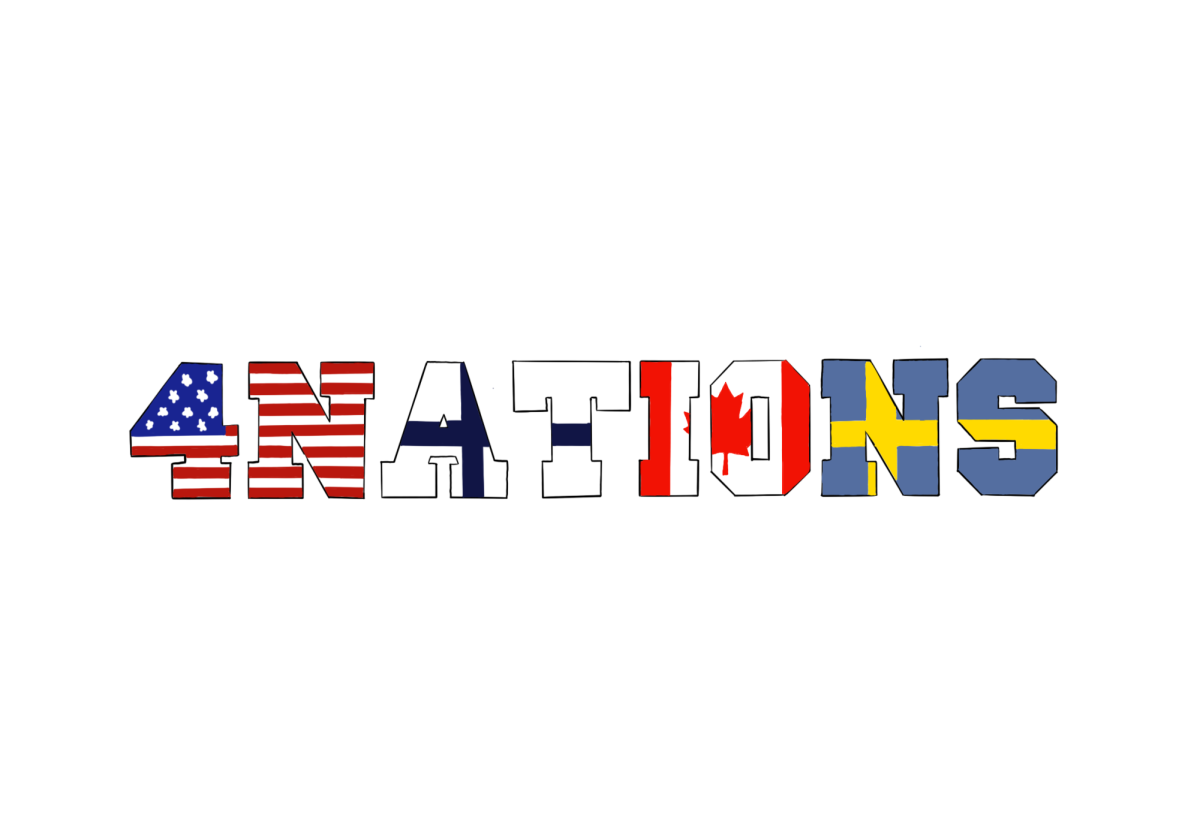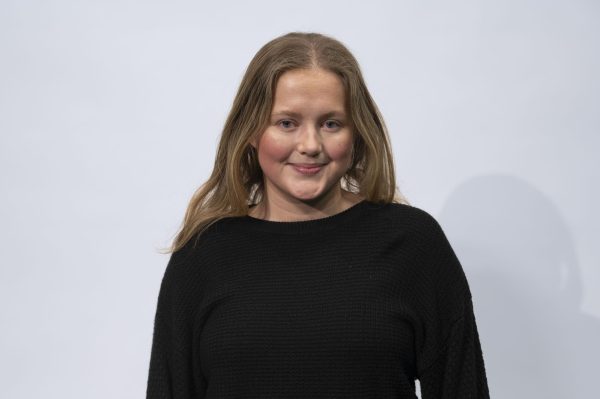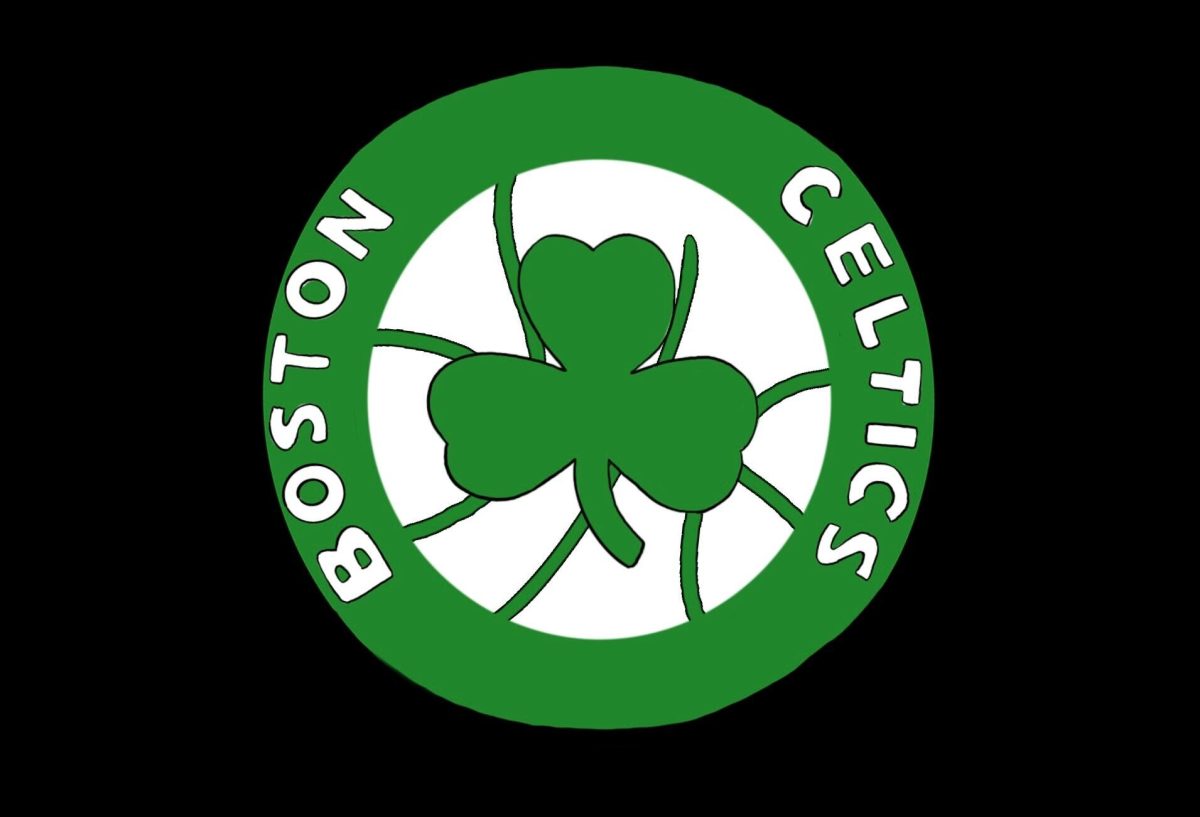It’s official: Team Canada has taken the first ever 4 Nations Faceoff over their rival, Team USA, in a matchup that went beyond the scope of hockey. Edmonton Oilers forward Connor McDavid netted the game winning goal in overtime, making Canada victorious, 3-2 Feb. 20.
The 4 Nations Faceoff replaced the All Star Skills Competition and game with a tournament between the United States, Canada, Finland and Sweden. The tournament consisted of six round-robin style matchups. The two teams with the highest number of points advanced to the championship game.
Here are the key takeaways from this year’s tournament:
Jordan Binnington showed up when he needed to
Team Canada put Stanley Cup Champion, the St. Louis Blues’ Jordan Binnington, in between the pipes for this tournament. It came as a shock, given Washington Capitals goaltender Logan Thompson’s success in the net this season, and sure enough, through the first three games, Binnington was not the correct choice. He was shaky enough during the tournament that his ability to play against Team USA in the championship was called into question.
However, he proved himself when it mattered most. Binnington was rock solid Feb. 20. During the overtime period, he made a key save on a shot from U.S. forward Auston Matthews that could have been the game-winning goal.
Maybe it was the setting for Binnington. In 2019, he led the Blues to a Game 7 Stanley Cup Final victory in TD Garden against the Boston Bruins. Reliving that moment and feeling the same pressure brought out a different side of Binnington — something that Team Canada desperately needed.
The U.S. lacked true, calm veteran presence
One of Team Canada’s biggest assets was the presence of captain Sidney Crosby. Most all players in the NHL, no matter where they are from, have looked up to Crosby at some point. So many kids want to be “the next Sidney Crosby” when they first begin playing hockey. What team wouldn’t want someone like him? After winning two Stanley Cups in 2016 and 2017, Crosby knows what it means to be in a high pressure situation.
A presence like Crosby’s is something the U.S. missed in this tournament — the oldest player on Team USA’s roster was 33-year-old forward Chris Kreider. Kreider did not play for the senior team in the 2010 Olympics group play, the last time the U.S. defeated Canada in a best-on-best tournament. To compare, Crosby was on the gold-medal-winning Canadian team that beat the U.S. 3-2 in the gold medal game.
Beyond age and experience, U.S. captain Matthews failed to bring focus and confidence to his team. Matthews lacks success and leadership ability in high pressure situations. His team, the Toronto Maple Leafs, have not won a Game 7 since 2013, something many players compared the 4 Nations championship to this game. He failed to score a single goal over the course of the tournament’s four games. During overtime, Matthews left McDavid wide open in front of the net, which led to Canada taking home the trophy. This is not the level a captain should perform at.
If the U.S. had a player close to Crosby’s veteran status, they would have fared better in this matchup.
How politics influenced the team’s motivations and energy on the ice
The tournament this year very quickly turned into a political spectacle before the first puck dropped Feb. 12. Canadian fans have been booing the American national anthem since the inauguration of President Donald Trump and his announcement that he wanted Canada to become the 51st state and impose tariffs on the country.
In Montreal, the boos seemed to drive the U.S. team. They came out aggressive, dropping gloves and making hits early in the game. Politicians on both sides got involved after the game. Team Canada had a point to prove. They wanted to silence those threatening their nation — and they succeeded.
The U.S. should have focused on making this tournament about winning for the late forward Johnny Gaudreau. The team had a locker dedicated to him in each of their locker rooms, and his memory has been the driving force behind the Columbus Blue Jackets’ season.
Very quickly, however, Gaudreau fell to the back of much of the players’ minds. The team wanted to win “for Trump.” His call to the team before the championship was dubbed an honor by multiple players.
Injuries riddled Team USA’s roster
Many of Team USA’s key players were scratched due to injuries leading up to Feb. 20.
Most notably, Bruins defenseman Charlie McAvoy was ruled out by medical staff after coming down with an infection from a shoulder injury. McAvoy was a force against Canada in round-robin play, with his aggressive hits throwing his opponents off their game.
Florida Panthers forward Matthew Tkachuk had logged just under seven minutes of ice time before sitting out the entire third period of the championship. He left the Feb. 15 matchup in the third period after a lower body injury and did not play against Sweden. Tkachuk’s absence in the latter half of the tournament hindered his team, as he brings a major offensive presence and has the ability to get in opponents’ heads.
Vancouver Canucks defenseman Quinn Hughes was removed from Team USA’s roster prior to the tournament with an oblique injury. Hughes’ absence was detrimental to the U.S., given his status as one of the best defensemen in the league. Before the final, rumors circulated that Hughes would fly to Boston to join Team USA for the final if one more defenseman was unable to skate. However, these rumors proved false and Hughes did not meet the team. With McAvoy out, his presence would have been helpful to the team, which was otherwise lacking in defensive performance.
It is unclear when we will see the 4 Nations Faceoff next. Given its success this year, there is a strong possibility Canada, the U.S., Sweden and Finland will face off again. For now, we can look to the 2026 Milan Winter Olympics for more best-on-best hockey.
As always — go Bruins. See you next time!








